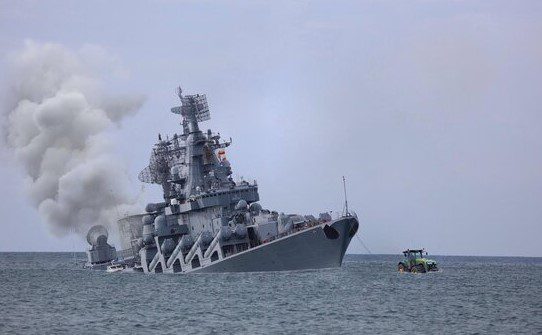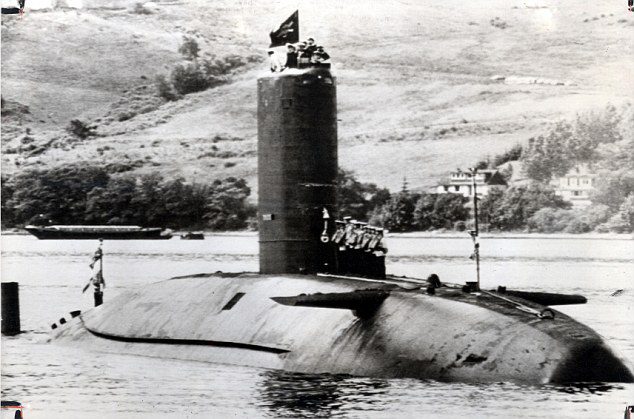On this morning, the Russian guided-missile cruiser Moskva sinking some distance beneath the Black Sea. Who knows if it’s there because of Russian incompetence, Ukraine-launched missiles, or a combination of the three. Regardless, it is clear that the loss of the largest naval ship in 40 years is going to raise a lot of questions for Russia and the rest of the world’s military planners.
What caused the sinking?
In the Black Sea, the ship sank on Thursday off the coast of the Ukrainian territory. According to the Russian Defense Ministry, the ship’s ammunition was detonated by an unknown fire, and the subsequent explosions caused structural damage to the Moskva. The Moskva sinking in rough seas while being towed to a nearby port, according to the report.
A cruise missile strike on the Moskva, Ukraine claims, set off the fire that caused the ammunition to detonate.
The Ukrainian account appears to be preferred by US and Western defense officials.

According to a source familiar with the most recent intelligence, the United States has “medium confidence” in Ukraine’s account of the events.
Moskva was equipped with a variety of missiles, including anti-ship and anti-aircraft missiles, torpedoes, naval guns, and missile defense systems, which would have required a large number of explosives.
When was the last time a ship of this size was lost in war?
On May 2, 1982, the British nuclear-powered submarine HMS Conqueror sank the Argentine cruiser General Belgrano during the Falkland Islands war.

General Belgrano and the Moskva were both about 600 feet (182 meters) long and weighed 12,000 tons, but the Belgrano’s crew of 1,100 was more than twice the size of the Moskva’s crew of 500. Russia has not revealed how many people were killed when the Moskva caught fire and sank. When General Belgrano sank, 323 members of the crew perished.
What does the loss of the Moskva mean for the Russian war effort?
The greatest impact may be felt by the spirits of Russians. One of Russia’s most visible assets during the Ukraine conflict was the Black Sea Fleet’s flagship fleet, the Moskva. The sudden disappearance of a ship of this size will be difficult to conceal even if Moscow takes great care to keep the news of the war in Russia under wraps.
As a result, Russia’s military capabilities will be questioned, whether by enemy action or accident.
“Both explanations for the sinking of the Moskva indicate possible Russian deficiencies — either poor air defenses or incredibly lax safety procedures and damage control on the Black Sea Fleet’s flagship,” analysts Mason Clark, Kateryna Stepanenko, and George Barros at the Institute for the Study of War wrote in their daily war briefing.

Captain Carl Schuster, a retired US Navy officer, claimed that the skepticism extended as far as the Kremlin itself.
According to the ISW, the ship was mainly used for cruise missile strikes on Ukrainian logistic centers and airfields, so it’s not a major setback. Russia has both land-based and air-based systems capable of doing the same thing, they claimed. However, if it was a Ukrainian missile that sank the ship, the Russian navy would have to rethink its operations, possibly moving ships farther from Ukrainian territory and adjusting their air defenses.
According to John Kirby, the Pentagon’s spokesman, Russia’s Black Sea forces rely on the Moskva for air defense.
“It will have an impact on that capability, certainly in the near term,” Kirby told reporters.
